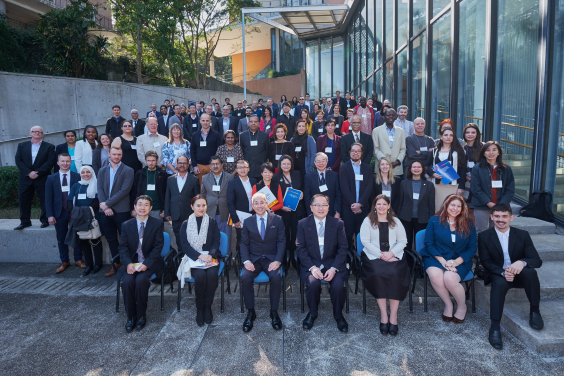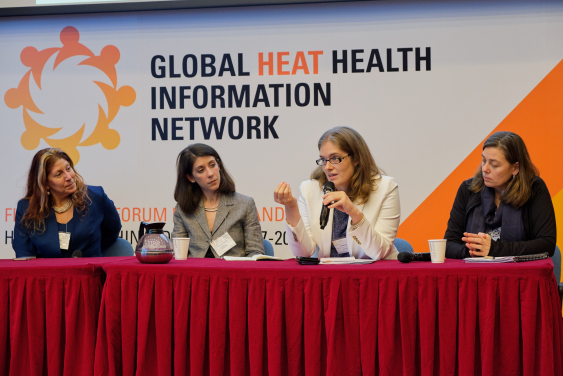Media
Climate and health experts committed to tackle the deadly consequences of heat
24 Dec 2018
Amid calls from the international community for greater action on climate change, a global network of scientists and practitioners has launched a new initiative to reduce the devastating health impacts of heat waves and extreme heat.
The First Global Forum on Heat and Health, held from December 17 to 20 at the University of Hong Kong, brought together over 120 climate and health experts from 33 countries to strengthen cooperation in science. The network aims to build the capacity of governments, organizations, and professionals to protect populations from the avoidable health risks of extreme and ambient heat.
Worldwide experts agree extreme hot weather is having devastating consequences for human health in all inhabited world regions. For many places, heat waves kill more people than any other weather-related disaster. Researchers in Hong Kong revealed at the forum that in highly urbanised and densely populated parts of the Asian city, every 1 degree Celsius increase in maximum daytime temperature above 28.2 degrees Celsius results in a 1.8 percent increase in mortality. Experts note that the world could reach a level of more than 80-90% urbanisation by the last quarter of the century, placing extremely large populations at risk.
Attendees participated in a simulated emergency exercise of a high impact heatwave event with many casualties where participants learned the effectiveness of timely, clear and concise communication with the public, media, governments and stakeholders to prevent and reduce health impacts. The forum launched a global network which will seek to build diverse partnerships, improve available evidence and actionable information for planning and preparedness, enhance global heat wave prediction capabilities, and promote life-saving heat-resilient interventions such as community outreach and early warning systems.
The Forum recognised that there is a need:
- to improve awareness of the silent emergency that increasing heat and heatwaves pose to human health across the globe;
- to strengthen opportunities and resources for the protection of populations most vulnerable;
- to strengthen partnerships across relevant government, academic, and civil society partners to exchange information on good practices, tools and technologies, and lessons to understand and manage heat risks;
- to become more effective communicators about heat and heatwave risks;
The Forum identified that the Network should engage with and support the concept of the five pillars for action:
- Partnerships and capacity building;
- Data, science, and research for understanding health risks of heat;
- Climate and weather information for decision-making and action;
- Interventions and actions to prevent heat exposure and negative health outcomes
- Communications and outreach;
The diverse network of professionals from many fields, including medical doctors, meteorologists, architects, and urban designers have committed themselves to working together to improve risk monitoring capabilities, including meteorological information and warnings, and health surveillance. They will share the recommendations with their partner organisations, including the World Meteorological Organization and World Health Organization, recognising their importance in providing guidance for addressing these risks.
”The 2018 was the fourth warmest year on record, one of 20 warmest years that have occurred in the past 22 years. Many parts of the world experienced, exceptional heat prolonged heatwaves and associated wilfires,” said Elena Manaenkova, WMO Deputy Secretary-General, adding: “Hot extremes will increase in the future so that the risk to human health. Heat warnings and related weather and climate services are critical to mitigate this risk. Therefore, WHO and WMO are tackling urgent action and bringing health experts and meteorologists together to enhance heat-health services to public”.
For media requests and solicited interviews with key experts, please contact
Lucas Scherdel, WHO/WMO Communications scherdel.who@gmail.com
For more, see www.ghhin.org/ghhin-info



